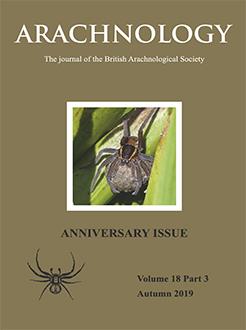Lycosa inornata Blackwall, 1862 is a small wolf spider that inhabits open environments from Uruguay and, like other wolf spiders, little is known of their sexual behaviour, which we describe here. Male courtship behaviour includes leg rubbing, leg vibration and pedipalp drumming, as well as leg waving. Females respond to male courtship by running towards them and shoving them with her legs and body. Receptive females lower their body on the substrate and slightly raise and twist the abdomen, facilitating the mounting and subsequent pedipalp insertions. Copulation lasts less than an hour, has two behavioural copulatory patterns and one haematodochal expansion per pedipalp insertion, in turn intercalated by pedipalp chewing. Pattern I consists of several insertions with the same pedipalp before a side change. Pattern II consists of a single pedipalp insertion before a side change. Females construct a single egg sac within 40–45 days after copulation and an average of 65 spiderlings emerge after 35 days. As occurs in other species of lycosid, L. inornata presents a low rate of sexual cannibalism. This study adds to the few descriptions of sexual and reproductive behaviours in wolf spiders and we hope it will increase knowledge of this diverse family of spiders.
How to translate text using browser tools
3 December 2019
The sexual behaviour of the Neotropical wolf spider Lycosa inornata (Araneae: Lycosidae), with comments on maternal behaviour
Carlos A. Toscano-Gadea,
Macarena González
ACCESS THE FULL ARTICLE

Arachnology
Vol. 18 • No. 3
November 2019
Vol. 18 • No. 3
November 2019
copulation
courtship
offspring
Uruguay




